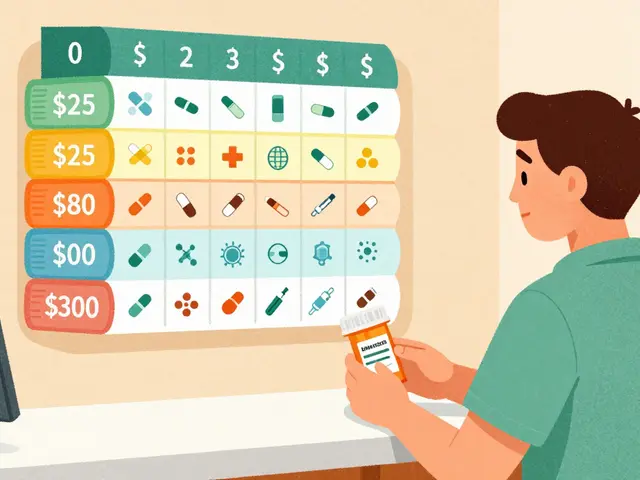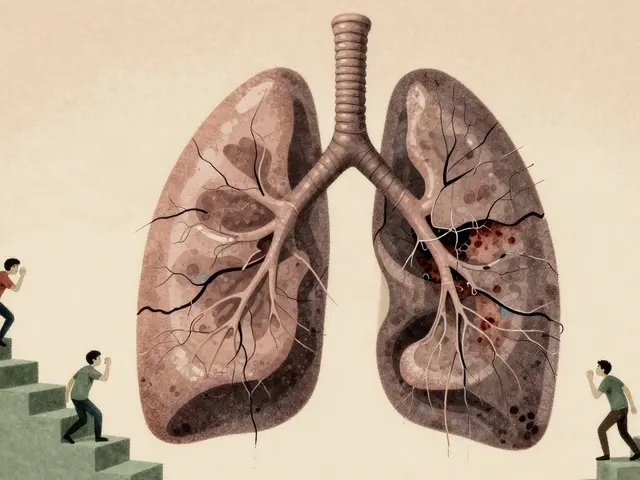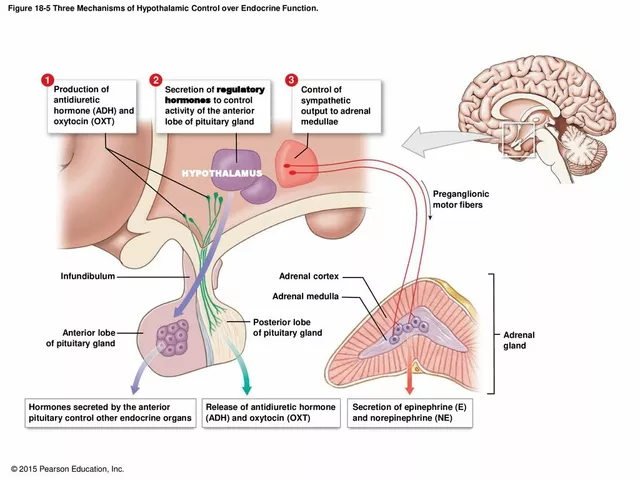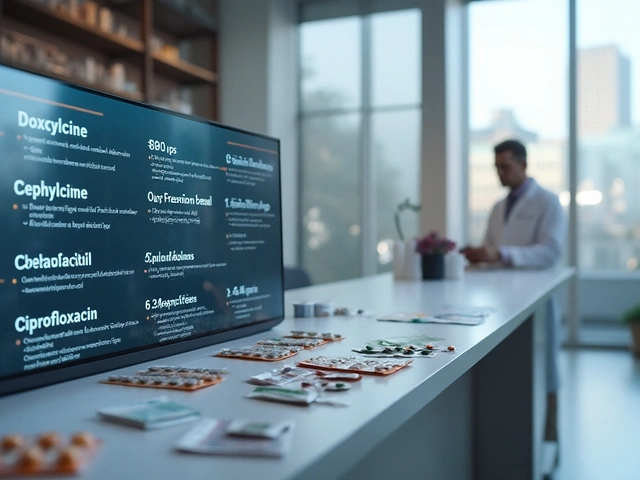Category: Health and Wellness - Page 4

- Oct 9, 2025
- Posted by Cillian Osterfield
Tinnitus and Hearing Loss: Understanding Their Connection
Explore how tinnitus and hearing loss are linked, the shared causes, when to seek help, and practical steps to manage both conditions.
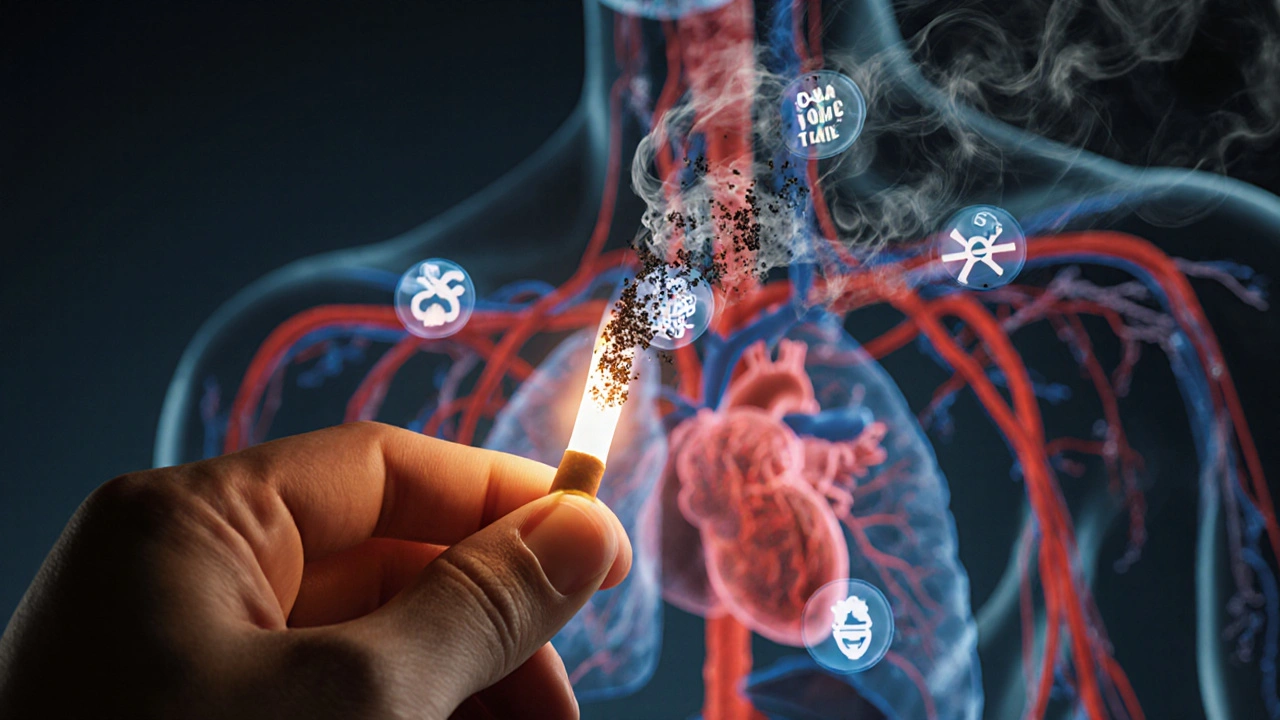
- Oct 8, 2025
- Posted by Cillian Osterfield
How Smoking Drives Heart Disease and Stroke: Risks, Mechanisms, and Prevention
Learn how smoking fuels heart disease and stroke, the underlying mechanisms, risk stats, and effective steps to quit and protect your cardiovascular health.

- Oct 6, 2025
- Posted by Cillian Osterfield
Sleep Wrinkles Explained: How to Stop Sleep Lines for Youthful Skin
Learn how sleep habits cause wrinkles and get practical tips on pillow choices, sleep positions, and nighttime skincare to prevent sleep lines.

- Oct 5, 2025
- Posted by Cillian Osterfield
Erectile Dysfunction and Premature Ejaculation: How They’re Linked and What to Do
Learn how erectile dysfunction and premature ejaculation intersect, their shared causes, and practical steps-including meds, lifestyle tweaks, and therapy-to address both issues.

- Oct 3, 2025
- Posted by Cillian Osterfield
Do Natural Osteoarthritis Remedies Actually Work? Evidence & Tips
Explore the science behind natural osteoarthritis remedies, learn which supplements have real benefits, and get practical tips for safe, effective use.

- Sep 30, 2025
- Posted by Cillian Osterfield
Understanding Chronic Idiopathic Constipation in Kids: Signs, Symptoms & Treatment Options
Learn how to spot chronic idiopathic constipation in children, understand its symptoms, and explore effective treatment options from diet tweaks to safe laxatives.

- Sep 29, 2025
- Posted by Cillian Osterfield
Altitude Sickness and Nausea: Proven Prevention & Treatment Tips
Learn how to stop nausea caused by altitude sickness, with proven prevention steps, medication guides, and emergency treatment tips for safe high‑altitude travel.

- Sep 28, 2025
- Posted by Cillian Osterfield
How Stress Impacts Fertility: The Mind‑Body Connection Explained
Explore how chronic stress disrupts hormones, affects ovulation and sperm quality, and learn practical mind‑body strategies to boost fertility.

- Sep 21, 2025
- Posted by Cillian Osterfield
Modaheal Review: What It Is, Benefits, Risks, and How to Use It Safely
Discover what Modaheal actually does, its key benefits, potential risks, recommended dosage, and how it stacks up against similar supplements. A practical guide for anyone considering this product.

- Jun 9, 2025
- Posted by Cillian Osterfield
Zantac: What Really Happened, Safety, and Alternatives Explained
Wondering what the buzz around Zantac is all about? This article digs into the true story behind the popular heartburn drug, the safety concerns that led to its recall, and what options people have now. Get a clear breakdown of what happened and what it means for anyone who used Zantac. Facts, safety tips, and real info—no fluff, no confusion. Stay in the know about Zantac’s place in medicine today.
Categories
- Health and Wellness (72)
- Medications (71)
- Health and Medicine (28)
- Pharmacy Services (12)
- Mental Health (9)
- Health and Career (2)
- Medical Research (2)
- Business and Finance (2)
- Health Information (2)
©2026 heydoctor.su. All rights reserved

